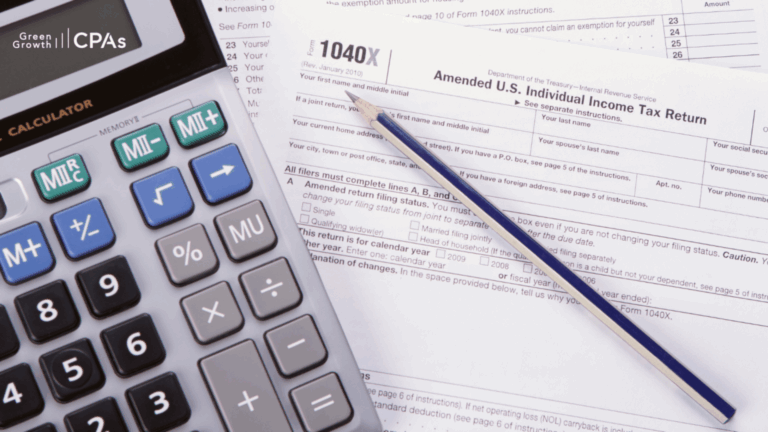Follow this checklist to gather everything you need to fill out your cannabis business tax return.
- You will need your tax returns for prior two years, plus copies of your sales, excise, and local tax returns.
- Make sure you have your income statements ready as well as your P&L and balance sheets.
- Watch out for expenses that can’t be deducted under the 280E regulation.
Speak to one of our experts for help filing your cannabis taxes.
State and Federal tax authorities are most concerned about collecting the right amount of tax revenue and a few mistakes on your tax returns could cost you additional penalties and fines. There is sure to be a lot of scrutiny on operators from both state regulators and the IRS who will be looking for reasons to penalize those who are not compliant.
If the case of Harborside vs. the IRS is any indication, the tax authorities are showing no mercy in prosecuting negligent or noncompliant cannabis operators.
General Information
Here’s a general list of some information you should have at hand that you will share with your CPA so that they can accurately fill out your cannabis business tax return.
Miscellaneous Documents & Information
- Tax returns for prior 2 years
- Copies of sales, excise, and local tax returns
- Cash handling log
- Articles of Incorporation
- IRS issued Employee ID Number (EIN)
- Sellers Permit Number
- Monthly banks statements (if applicable)
- Balance Sheet
- Profit and Loss Statement (P&L)
- List of owners/business partners and their ownership percentages
- Social Security Numbers of each partner
- Building information include lease and tenant improvement receipts
- List of new assets purchased + receipts
- Quickbooks and POS login information
Income
- Gross receipts
- Returns and allowances
- Business checking/savings account interest (1099-INT or statement)
- Other income
Cost of Goods Sold
- Review this blog post to see what you can take under COGS deductions. The 280e regulation prevents cannabis operators from taking many of the typical deductions.
Expenses
- Advertising
- Bank charges & finance fees
- Commissions / fees
- Contract labor: Forms 1099-MISC and 1096
- Computer & internet expenses
- Health insurance: including premiums paid to cover the sole-proprietor and family and premiums paid on behalf of partners and S corporation shareholders
- Insurance
- Interest expense: including mortgage interest on building owned by business or business loan interest
- Meals & Entertainment
- Office supplies: Pens, paper, staples and other consumables
- Mortgage interest or rent paid
- Homeowner’s or renters insurance
- Utilities
- Rent expense: office space rent, business use vehicle lease expense, or other equipment lease
- Repairs / maintenance
- Supplies
- Taxes / licenses
- Transportation and travel expenses
- Wages paid to employees: Form W-2 and W-3
- Federal and state payroll returns (Form 940, Form 941, etc.)
- Employee benefit expenses
- Other business related expenses
Please note that many of the expenses listed above may not be deducted because of tax code 280E. Its important to speak with a CPA who is well-versed in cannabis regulations to ensure you’re doing everything possible to reduce your tax burden.
Federal Taxes for Cannabis Companies
Though cannabis is technically still a Schedule I controlled substance, cannabis operators are still responsible for filing a tax return with the IRS.
The type of return you file will depend on your business entity – the way you’re structured. For example, a corporation based in California would file a Form 100, California Corporation Franchise Tax or Income Tax Return. Make sure to ask your CPA about your state-specific form requirements.
Here are some other common business structures:
- Sole proprietors and single-member LLCs: Report business income and expenses on Schedule C attached to their Form 1040 Individual Income Tax Return
- Partnership or multi-member LLC: Report business income and expenses on Form 1065
- S corporations: Report business activity on Form 1120-S
The main difference in filing your taxes as a cannabis operator (versus a regular small business) will be in the deductions, credits and records you’ll be asked to submit at the time of your filling. Remember, the 280E dictates what you can and can’t take as a deduction.
We suggest working with a CPA firm that has cannabis industry experience to make sure you’re completing the right forms and taking the proper deductions.
State Taxes for Cannabis Companies
State taxes vary, of course, depending on where you are. To find the cannabis tax rates in your state, check this helpful guide.
City & Local Taxes for Cannabis Businesses
Cities and counties may impose additional taxes to produce revenue for their community, and fluctuating tax rates depend on where your cannabis company operates and is located. To find your local tax regulations, contact your municipality.
Ask the Cannabis Experts
Here at GreenGrowth, we’re dedicated to helping our clients keep as much of their hard-earned money as possible. Before filing your taxes yourself or trying to use a CPA without cannabis industry knowledge, schedule a free consultation and see what GreenGrowth can do for you.




